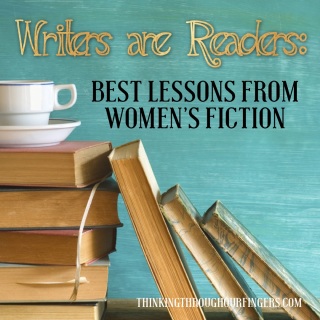For just over a month, several contributors here at TTOF have been discussing the importance of writers being readers too. Elaine (MG), Erin (MG Fantasy), Rosalyn (YA) and Helen (NA) each talked about the importance of reading, so I’m not going to reiterate what they have said.
Instead, I will advise that reading is fundamental to understand genre. Of course, there are certain genres that are easily identifiable, but as the market continues to grow, it becomes important, no, essential that writers are reading what they claim to be writing. There are nuances between magic realism and fantasy, between MG and YA, between romance and women’s fiction, nuances that people can talk about and explain, but that are nearly impossible to fully understand without having read that genre.
So, the books recommended below are all novels that were instrumental in helping me identify my genre, see what was possible within it, and a deep study from some of the masters of women’s fiction and how they weave in the fundamental elements of the genre.
For a lesson on emotional writing
For a lesson on magic
For a lesson on family relationships
For a lesson on friendship
For a lesson in voice and character development
For a lesson in establishing mood and setting
For a lesson on historical fiction
_________________________________________
Tasha Seegmiller is a mom to three kids and high school English teacher in Southern Utah. She writes contemporary women’s fiction with a dash of magic. Her loves include Diet Coke, owls, chocolate and cinnamon bears. She is the managing editor for the Women’s Fiction Writers Association quarterly newsletter.



Loving this post!!! My absolute favorite women's fiction is Jennifer Weiner's Little Earthquakes–it stays with me to this day. I loved how it taught me multiple POVs (third AND first, with first reserved for the protagonist) as well as how to handle a difficult situation with humor and heart. Also, Elin Hildebrand's Beautiful Day. It did a wonderful job at dropping some pretty great a-ha moments, organically, in a very normal-person story. I don't like reading beautiful writing that strives to be beautiful–I definitely am one for plot, where the beauty of the situation/people/dialog happens fluidly.
-S.
LikeLike
I agree. Beautiful Day has been on my TBR list for a long time – sounds like I'd better bump it up!
LikeLike